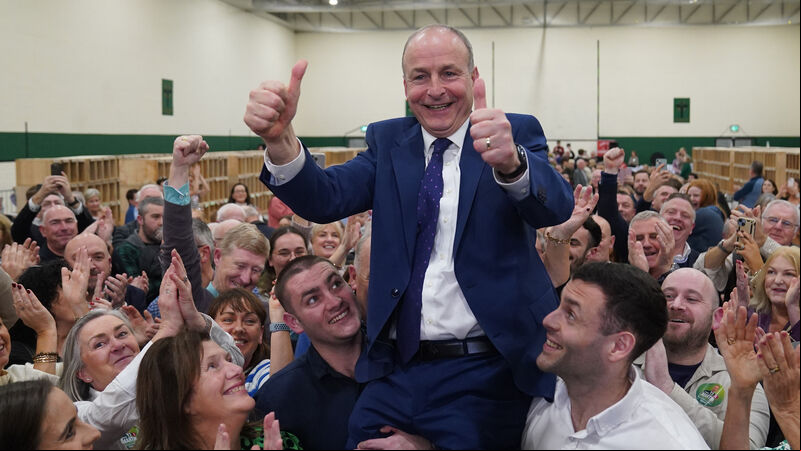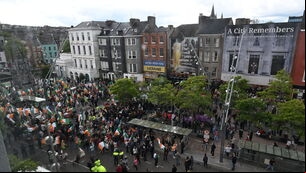The word coalition is no longer a dirty word in Irish politics

Fianna Fáil leader Micheál Martin being hoisted up by his sons Cillian and Michéal Aodh, after he was elected in the Cork South Central constituency at the election count centre at Nemo Rangers GAA Club in Cork.








 App?
App?


